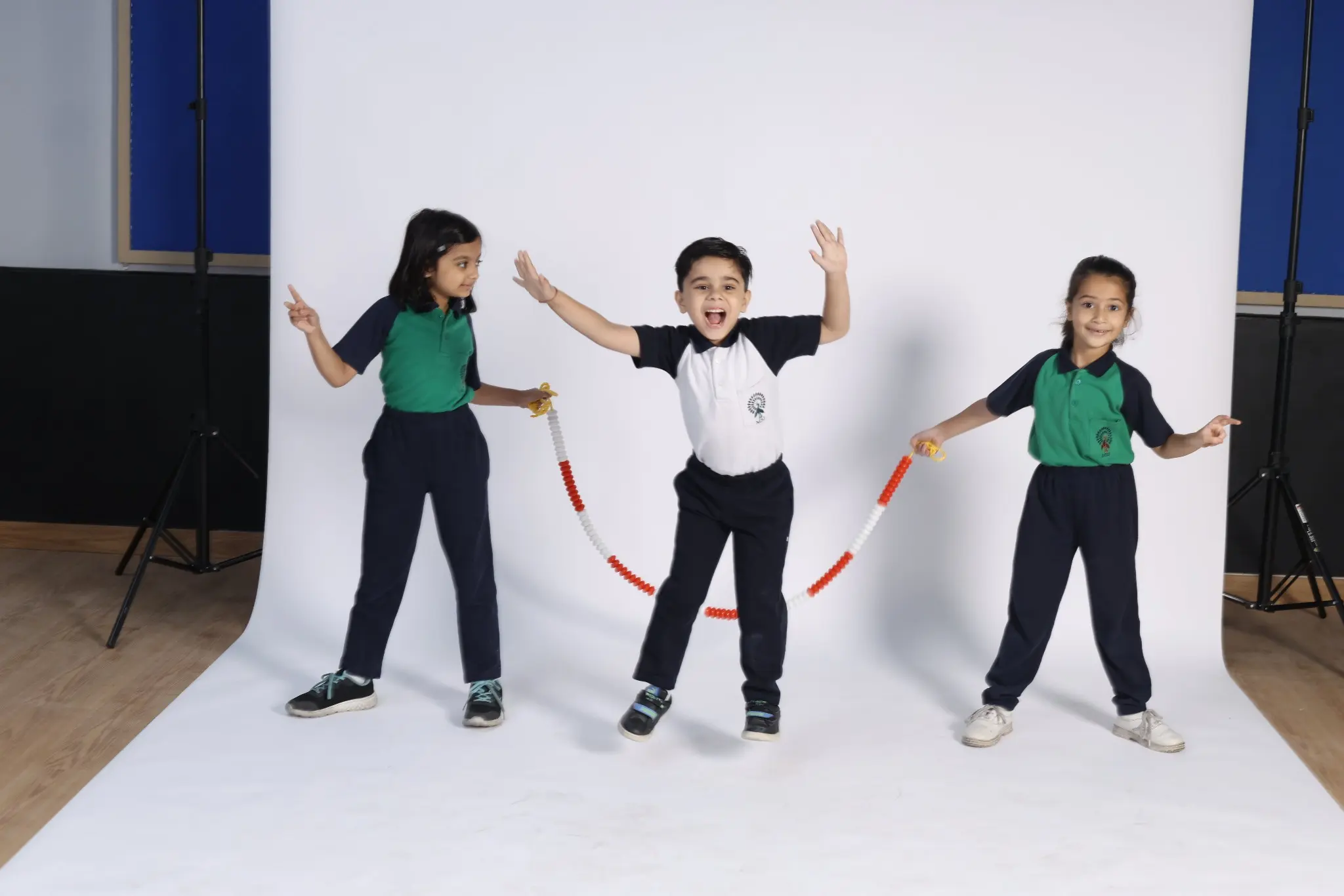Admission Enquiry


Early childhood is often described as the foundation of a child's future. The experiences, learning environment, and guidance a child receives during the first few years of life shape not just academic performance but also personality, emotional intelligence, creativity, and the ability to learn throughout life. In today's rapidly evolving world, where adaptability, communication, and problem-solving skills matter as much as academic knowledge, early childhood education (ECE) has emerged as one of the most critical stages in a student's journey.
Schools that understand this philosophy emphasise experiential learning, creative exploration, and values-based development to nurture children into confident, curious, and capable lifelong learners.
This article explores how early childhood education shapes lifelong learning and why investing in quality early education is one of the most meaningful decisions for a child's future.
Research shows that 90% of a child's brain development occurs before the age of five. During this stage, children form neural connections at a rate never seen again in their lifetime. These connections become the building blocks of all future learning, language, memory, reasoning, emotional understanding, and social interactions.
Early childhood education provides structured opportunities for:
Such experiences help children absorb concepts effortlessly while forming habits that support their learning journey in later years.
A child who feels safe, encouraged, and supported becomes naturally curious. They begin asking questions, exploring their environment, and enjoying the learning process. These are the early sparks of lifelong learning behaviour.
Quality early education:
When children begin their academic journey with a positive and engaging environment, they start associating school with excitement and growth rather than stress. This mindset often continues into primary, secondary, and higher education.
A significant part of education revolves not around textbooks, but around understanding emotions, relationships, and social behaviour. Early childhood classrooms are often the first structured social environment children experience outside the home.
Through play, teamwork, and daily interactions, early learners develop:
These early social skills form the foundation of emotional intelligence, one of the most critical skills for success in school, career, and personal life.
Schools like Mayoor School Jaipur place strong emphasis on value-based education, guiding children to grow emotionally, socially, and ethically, along with academically.
Language development is at its peak in early childhood. Children who are encouraged to listen, speak, read, and express themselves grow into confident communicators, an ability that influences success across every stage of life.
Quality early childhood programs introduce children to:
These experiences help children learn not just words, but also how to express thoughts, negotiate, resolve conflicts, and participate actively in classroom discussions as they grow older.
Early childhood education introduces children to structured routines, something that becomes essential for academic performance and time management in later years.
They learn:
These habits develop naturally through daily classroom routines. By the time children enter primary school, they become comfortable with structured learning, enabling them to adapt better and take on new challenges.
At Mayoor School Jaipur, classroom environments are designed to gently train children in responsibility, discipline, and self-management through predictable routines and positive reinforcement.
One major misconception is that early childhood education is only about alphabet worksheets or basic counting. In reality, the most effective learning in early years happens through play.
Play-based learning:
Whether it's building blocks, puzzle-solving, pretend play, or outdoor activities, children learn complex skills organically through play. This early creativity later translates into innovative thinking, better academic performance, and the ability to solve real-world problems.
As children interact with peers, handle small tasks, and complete activities independently, they begin developing essential life skills.
Early childhood education helps children:
These skills promote autonomy, a key factor in shaping self-motivated learners. Independent children show better initiative, retain information more effectively, and adapt quickly to new learning environments.
Every child is unique, with a different pace and style of learning. Early childhood educators are trained to observe children closely and identify strengths, weaknesses, behavioural challenges, or learning differences early.
Early identification allows:
When nurtured early, these strengths evolve into long-term passions and capabilities.
Early education is not limited to the classroom. It creates a communication loop between parents, teachers, and the child.
Parents are updated on:
This helps parents reinforce learning at home, leading to consistent development. Schools actively involve parents through regular interactions, events, and collaborative programs, making education a shared journey.
The benefits of early childhood education extend far beyond preschool or kindergarten. Studies show that children who receive quality early education are more likely to:
This proves that early childhood education is not just preparation for school; it is preparation for life itself.
Early childhood education lays the foundation for everything a child will learn, experience, and achieve throughout life. It shapes brain development, nurtures curiosity, builds confidence, instils values, and prepares children to thrive academically, socially, and emotionally.
Schools like Mayoor School Jaipur, play a vital role in this journey by providing a safe, joyful, engaging, and intellectually stimulating environment where children love to learn and grow. Their focus on holistic development ensures that each child is not only prepared for school but is prepared for life, ready to learn, adapt, and succeed with confidence.
Investing in quality early education is one of the greatest gifts we can give a child. Because when the foundation is strong, the future becomes limitless.